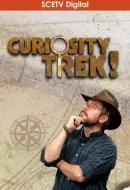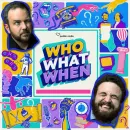The Anne Frank Center on the main campus of the University of South Carolina is offering a delicate approach to learning about one of the most horrific atrocities of the 20th century. The exhibit allows visitors to immerse themselves in the world that sent Anne Frank into hiding, where she wrote her world-renowned diary.
“We are proud and excited to welcome the Anne Frank Center at the University of South Carolina as the official partner of the Anne Frank House in North America. We've been working together for a long period of time with a group of excellent Holocaust educators and scholars in South Carolina, which now will host the official partner site of the Anne Frank House together with our European partners in Berlin and London, and our Latin-American partner in Buenos Aires, Argentina,” said Ronald Leopold, executive director of the Anne Frank House in Amsterdam.
“The Anne Frank diary is one of the most reprinted, in multiple languages of the world, of any books ever. And it is because, I think, it is in her world, in her words. In her world, looking at the little bit of light that comes into the attic, for example, or thinking about the world outside, or even her own reflections as she's maturing. So, it's poignant in a way no historian could ever reproduce,” said Dr. Harris Pastides, interim president of the University of South Carolina.
Dr. Doyle Stevick is the executive director of the University of South Carolina Anne Frank Center. He said, “one thing we learned from the diary is that young people's voices matter. They have things to say; their actions and words matter. And sometimes young people don't fully appreciate that. They all recognize the negative power of peer pressure, but they don't always know their own potential to bring out the best in one another. And through peer leadership and peer education, we think we can help them recognize their own potential to influence one another for the better, and to become better citizens as a result.”
On September 15, 2021, the Anne Frank Center opened its doors to the public and is now offering tours. The center is inviting schools and other groups to plan a visit, with guided tours and extended programming options available at the University of South Carolina campus in Columbia. Special tours are also offered for adults and for families with children ages 12 and up, with hopes of creating more age-appropriate tours for younger audiences in the future. To schedule a tour or find out more, go to sc.edu/AnneFrankCenter.
If you can’t make it to Columbia for a tour yet, set your DVRs or mark your calendars to watch Palmetto Scene on Thursday, April 28 at 8:00 p.m. on ETV. Join us on Yom Hashoah, Holocaust Remembrance Day, to find out how the Anne Frank Center is impacting students, educators, and the community.
“We hope this is a starting place and that it will inspire people to continue to learn about the dangers of prejudice and discrimination and to recognize that we have the ability to stand up and make a difference,” said Executive Director Stevick.
In a 1996 speech, Miep Gies describes the day the Nazis discovered the Frank family and four others. “Every year on the fourth of August, I close the curtains of my home and do not answer the doorbell and the telephone. It is the day that my Jewish friends were taken away. I have never overcome that shock. I loved and admired them so much. Two years, they had to live with eight people in a small place. They had little food and were not allowed to go out. They could not speak to their friends and family. On top of that came the fear every hour of the day. I have no words to describe these people who were still always friendly and grateful. Yes, I do have a word, heroes. True heroes they were. People sometimes call me a hero. I don’t like it, because people should never think that you have to be a very special person to help those who need you. I, myself, am just a very common person. I simply had no choice. I could foresee many, many, many sleepless nights, and a life filled with regret if I would refuse to help the Franks. This was not the kind of life I was looking forward to. I could not save Anne’s life. However, I did save her diary and by that, I could help her most important dream to come true. In her diary she tells us that she wants to live on after her death. Now her diary makes her really living on, in a most powerful way. And that helps in those many hours of deep grief. When I found it laying all over the floor in the hiding place, I decided to stow it away, in order to give it back to Anne when she would return. I wanted to see her smile and hear her say, 'oh, Miep, my diary!' But, after a terrible time of waiting and hoping, word came that Anne had died. At that moment, I went to Otto Frank, Anne’s father, the only one of the family to survive and gave him Anne’s diary.”
To watch more of this speech visit: https://video.idahoptv.org/video/dialogue-honoring-anne-frank/





